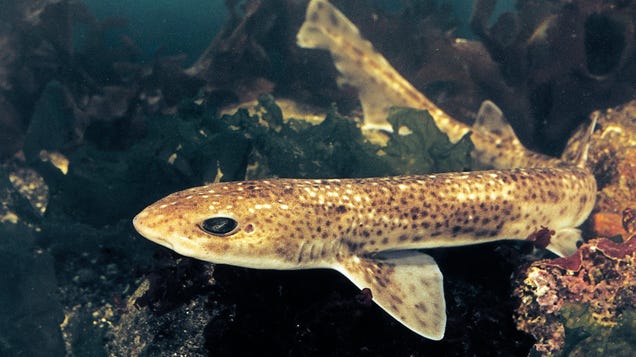
Climate change may be coming for some sharks, new research suggests. The study found that eggs belonging to the small-spotted catshark are substantially less likely to survive under the worst case climate scenario by 2100. The findings still indicate that these sharks can continue to thrive under less disastrous climate conditions.
The research was led by scientists from the Biology of Aquatic Organisms and Ecosystems (BOREA, for short) Lab in France. It was earlier this April in the journal and the scientists are set to present their findings Wednesday at the annual conference of the Society for Experimental Biology. The ( ), also confusingly known as the sandy or lesser spotted dogfish, is currently doing fine for the most part, with ample numbers along the northeast Atlantic Ocean surrounding Europe.

But according to the scientists behind this new research, the species has shown some signs of becoming more vulnerable in an increasingly warming earth. “The small-spotted catshark is already experiencing habitat loss in coastal areas, particularly during the summer months when egg-laying is at its peak,” said lead researcher Noémie Coulon, a PhD student at BOREA, in a from the Society for Experimental Biology. To better find out how these sharks will fare in the future, Coulon and her team raised and monitored batches of their eggs under three different scenarios.
These scenarios were distinguished by the temperature and pH of the water that the eggs were kept in. The l.















